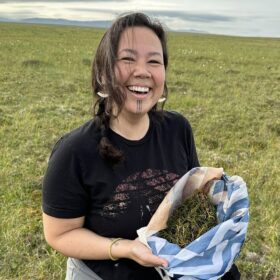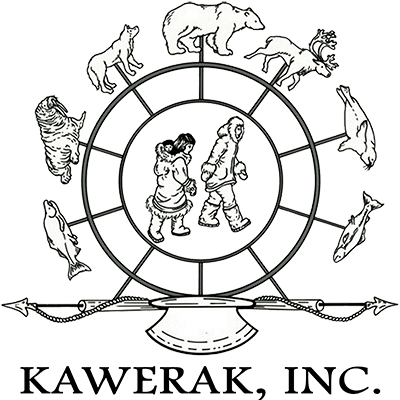Meet Ayyu:
Ayyu grew up between Dgheyey Kaq’ (Anchorage) and Uŋalaqłiq (Unalakleet) and is a tribal citizen of the Native Village of Unalakleet, the southernmost Iñupiaq and northernmost Yup’ik community. She credits her upbringing with her grandparents Stanton & Irene Katchatag, parents Doug & Vernita Herdman, family and community for the foundation of Iñupiaq and Native values that strengthen her work every single day. She is a proud mother of four, and attributes much of her passion and inspiration for working toward the perpetual strength and wellbeing of Alaska Native communities to them.
Ayyu has been with First Alaskans Institute since 2010, currently serving as Chief Administrative Officer. Over the course of her tenure with FAI, she has helped to grow a team and body of work that advances racial equity and social justice throughout Alaska, amplifying and contributing to the collective strength of our Native community through culturally-centered advocacy in all sectors. Over time, Ayyu has grown expertise in building strategies and hosting meaningful convenings that uplift community-based solutions to advance healing, awareness, and advocacy around the issues that impact our communities.
Ayyu earned her MA in Rural Development from the University of Alaska Fairbanks and a BA in Organizational Management with Nonprofit Emphasis from Alaska Pacific University; her MA thesis, “When Uŋalaqłiq Danced: Stories of Strength, Suppression & Hope” uplifted Iñupiat perspectives on colonization, missionization and the formation of the education system in Alaska, with a focus on reclamation and revitalization of ancestral ceremonies and practices. Her personal advocacy includes serving as a board member for multiple statewide and regional organizations, including Alaska Public Media, Philanthropy Northwest, University of Alaska Fairbanks and Anchorage, and Caleb Pungowiyi Scholars Steering Committee (under Kawerak). Ayyu’s extended professional history can be found here: https://www.linkedin.com/in/ayyu210

